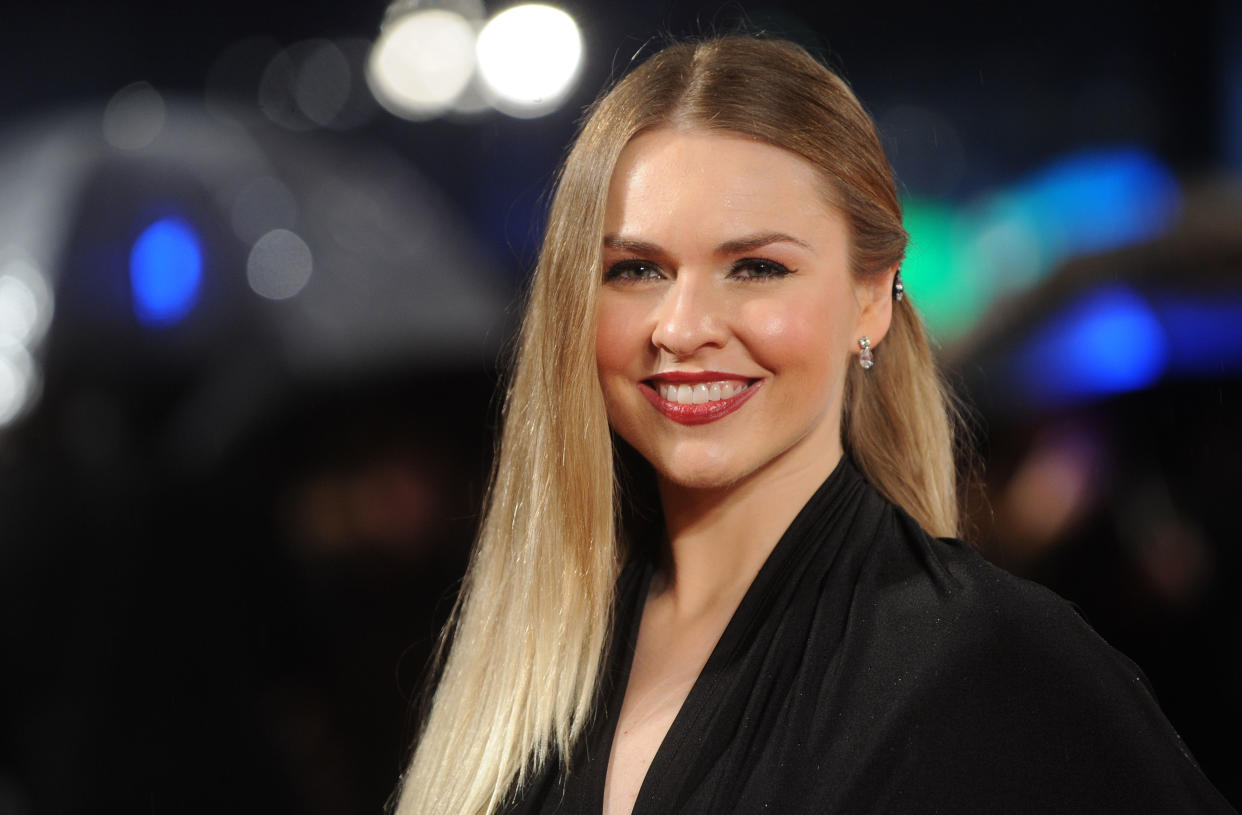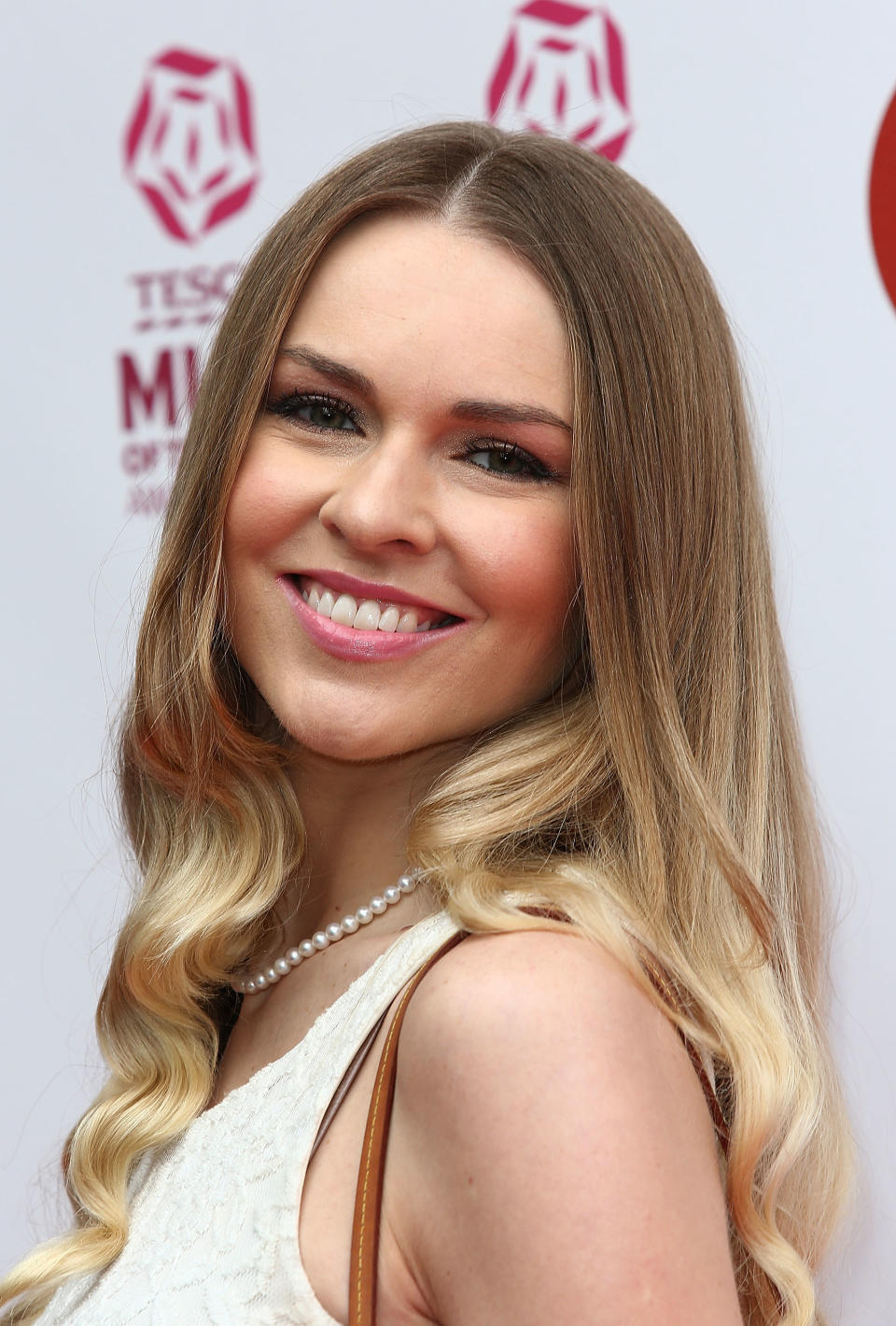Zoe Salmon reveals she drank up to 8 litres of water a day - how much is too much?

Zoe Salmon has revealed she used to drink up to eight litres of water a day.
The former Blue Peter presenter, 40, described her excessive consumption as an “addiction” and “massive episode in her life”.
Read more: Drinking too much water put one woman’s life in danger
Salmon thought she was giving her skin a youthful glow until she mentioned her intake to a masseuse in October, who convinced her to see a GP.
The doctor reportedly told her to “act right away”, gradually bringing her consumption down to the generally-recommended two litres.
After doing blood and urine tests, medics do not think Salmon’s extreme water intake caused any lasting damage.

“Each day I’d begin with a litre to kick-start my digestive system; I’d have another after my first coffee to balance out the effect of the caffeine and another after a smoothie,” Salmon told The Mirror.
“I’d drink a litre at the gym, fill up my water bottle with another litre for the drive home and if I went for a night out and had three or four glasses of wine, I’d have three or four glasses of water to counteract it.
“It’s been a massive episode in my life and I’ve felt really deflated knowing I was working so hard for my health, but what I was doing was counterproductive”.
How much water should you drink?
The government’s Eatwell Guide recommends people drink six to eight glasses of fluids a day. This can include water, milk, tea, coffee and low-sugar options.
Although two litres of water is often touted as the go-to amount, scientific evidence does not actually back this up.
The NHS describes water as a “healthy and cheap choice for quenching your thirst”.
“It has no calories and contains no sugars that can damage teeth.”
Read more: Chemicals in tap water may trigger thousands of bladder cancer cases in Europe
Water consumption should increase in hot weather or when exercising, which both cause people to lose more H2O via sweat.
NHS Inform Scotland recommends using your urine as a guide, with a well-hydrated person producing clear or pale-yellow liquid waste.
Others advise trusting your thirst.
“The control of hydration is some of most sophisticated things we’ve developed in evolution, ever since ancestors crawled out of sea onto land,” Dr Irwin Rosenberg from Tufts University in Massachusetts told the BBC.
“We have a huge number of sophisticated techniques we use to maintain adequate hydration.”
Note our sense of thirst becomes less sensitive with age, with elderly people often having to be more conscious of their water intake.

The risks of drinking too much water
Although rare, life-threatening water intoxication can occur if people drink too much.
This occurs when the excessive intake disturbs the balance of electrolytes, like sodium, potassium and calcium.
Sodium concentrations in the serum, which makes up the liquid part of blood, then rapidly reduce.
Drinking too much water in too short a space of time means the kidneys cannot filter it fast enough.
The excess water then moves via osmosis to regions where sodium levels are higher and H2O concentrations lower.
Once in cells, the vast water intake causes them to swell.
Brain cells, however, are incased by the skull – with little room to stretch.
Read more: Coronavirus cannot be cured by drinking 'garlic water', experts say
Early symptoms tend to be vague, like vomiting, nausea, confusion and disorientation.
Left untreated, the patient may have a seizure, go into a coma or even die.
In 2007, 28-year-old Jennifer Strange passed away after competing in a Californian radio station’s on-air water-drinking contest.
After downing around six litres in three hours to win an Nintendo game console, Strange started vomiting, developed a severe headache and later died.
In 2005, a fraternity initiation at California State University, Chico, left a 21-year-old man dead after he was forced to drink excessive amounts of water between push-ups.
Marathon runners have also been shown to have milder cases of water intoxication, with most recovering.
“Exercise-associated hyponatraemia is the most common type [of water intoxication] but there are other occasions when over drinking can occur,” pharmacist Linda Antwi-Ahima told the NHS’ St Mary’s Treatment Centre.
“Some people drink water in excessive quantities in an effort to feel full and to speed weight loss.
“This is not a healthy approach to weight reduction and could potentially be harmful”.

